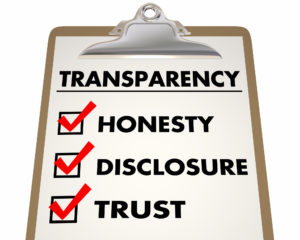Content Marketing in a Fake News Era
To suggest that fake news is novel, new, or a secret suddenly revealed is naïve. The intentional act of exaggerating content and spreading false information for a desired effect has been in practice since long before print was first pressed to paper. Fortunately, so too has integrity and a desire to encourage the advancement of an informed public, particularly where tactics like content marketing are concerned.
 Whether it’s a news outlet, an entertainment network, or a company promoting its services, responsible, professional content marketing should always be a priority in a never-ending era of fake news.
Whether it’s a news outlet, an entertainment network, or a company promoting its services, responsible, professional content marketing should always be a priority in a never-ending era of fake news.
The Consumer is Now King
Consumers today are savvier than ever. This is especially true in regard to traditional marketing tactics and trickery. A modern consumer with a twitchy Twitter finger can be quick to call your company’s intentions into question. Lie, cheat, or try to outright bamboozle consumers, and you’ll find yourself staring down the pointy ends of online pitchforks that could very literally drive you out of the marketplace. Regardless of the hours or advertising dollars content creators sink into quality content, consumers today have the power to make or break a brand in an instant. In this sense, the consumer—not the content—is now king.
Content Marketing Has Changed Dramatically
In an age of social media invasion, streaming video infatuation, and online escapism, it’s easy to understand why consumers are quick to blame media and content creators for any sort of cognitive dissonance. Furthermore, we Americans are so gullible that fooling us with fake news is apparently pretty lucrative.
“A lot of modern political journalism ignores context and complexity, presenting everything in black and white,” wrote Jürgen Krönig for Politico back in 2004. “[All media] has become more superficial and sensationalized…There is less room for a balanced approach, for analysis instead of going for the crass headline or extraordinary story.”
Krönig also pointed out more than a decade ago how the idea of media self-criticism seems to be the only media taboo, and he expressed the need for media (and brand) responsibility,
“Democracy and civil society need informed citizens, otherwise they will have difficulties in surviving. Without media organizations aware of their own power and responsibility, an informed citizenship cannot be sustained. What our democracies have got today is an electorate which is highly informed about entertainment, consumer goods, and celebrities, while being uninterested in and/or deeply cynical about politics, equipped with short attention spans, and a growing tendency to demand instant gratification.”
How do authentic, honest content creators and companies scratch the consumer itch for instant gratification without dipping their toes into fake news or bottom-of-the-barrel content? Variety and genuine human-to-human outreach form a solid foundation on which any company can confidently build their content marketing campaigns.
Offer Consumers as Many Life Preservers as Possible
When afloat in a churning sea of information—CNN, Fox News, NPR, Facebook, Twitter, brands we trust, companies making waves—whose life preserver does the savvy consumer grab? The involuntary reaction of the drowning person should be to reach for and hold on tightly to as many as possible. In this analogy, one life preserver is never enough to keep a civil society afloat; one source of information about what’s happening in the world around us is never enough. The same is true for content marketing. Only providing information from one source or disregarding opinions of others for doing the same is irresponsible and unproductive. Well-rounded, informative content just floats better.
Honesty Should Be Your Content Marketing Policy
Creating enlightening, entertaining, and honest content is more rewarding for creators in the long run and more attractive to consumers on a personal level than a deceptive, unclear alternative. Traditional tips for creating honest, authentic content that still ring true today include:
- Use reliable sources
- Accurately cite those sources
- Don’t make stuff up
- Apologize when you’ve made a mistake
Building and maintaining consumer trust in an era of fake news can be that simple. Make sure what you say, write, print, publish, and push into the public eye as a content creator is genuine and truthful to the best of your knowledge. Always. You catch and keep more flies (consumers) with honey, as the saying goes.
The inherent problem is that readers like you, and I, and the modern consumer population are naive creatures of habit, and consumers en masse tend to gravitate toward the path of least resistance. We instinctually mistake sugar-coated, energetically packaged vinegar for through-and-through honest, authentic honey content. Fortunately, brands today that create a content marketing model around inauthentic, untruthful content face a quick, remorseless backlash when the bitter taste finally reaches consumer mouths.
Andrew is a word wizard/content creator extraordinaire who considers himself a bit of a dabbler. From writing to reading, exercise, outdoor exploration, art, music, photography, and even a little existentialism, it’s all color on the creative palette.

